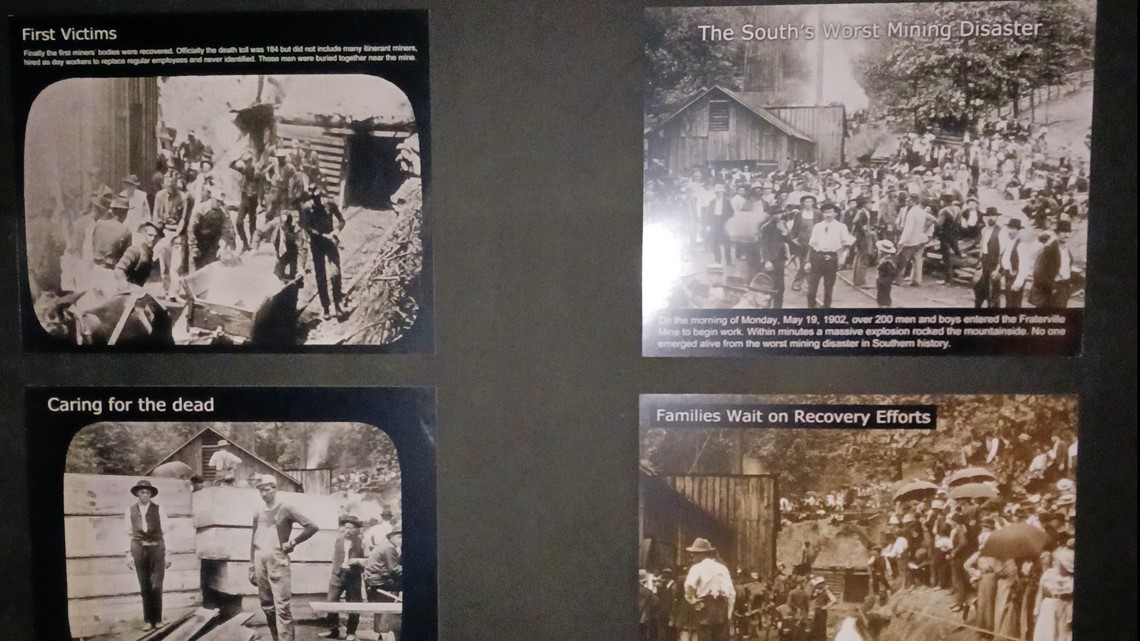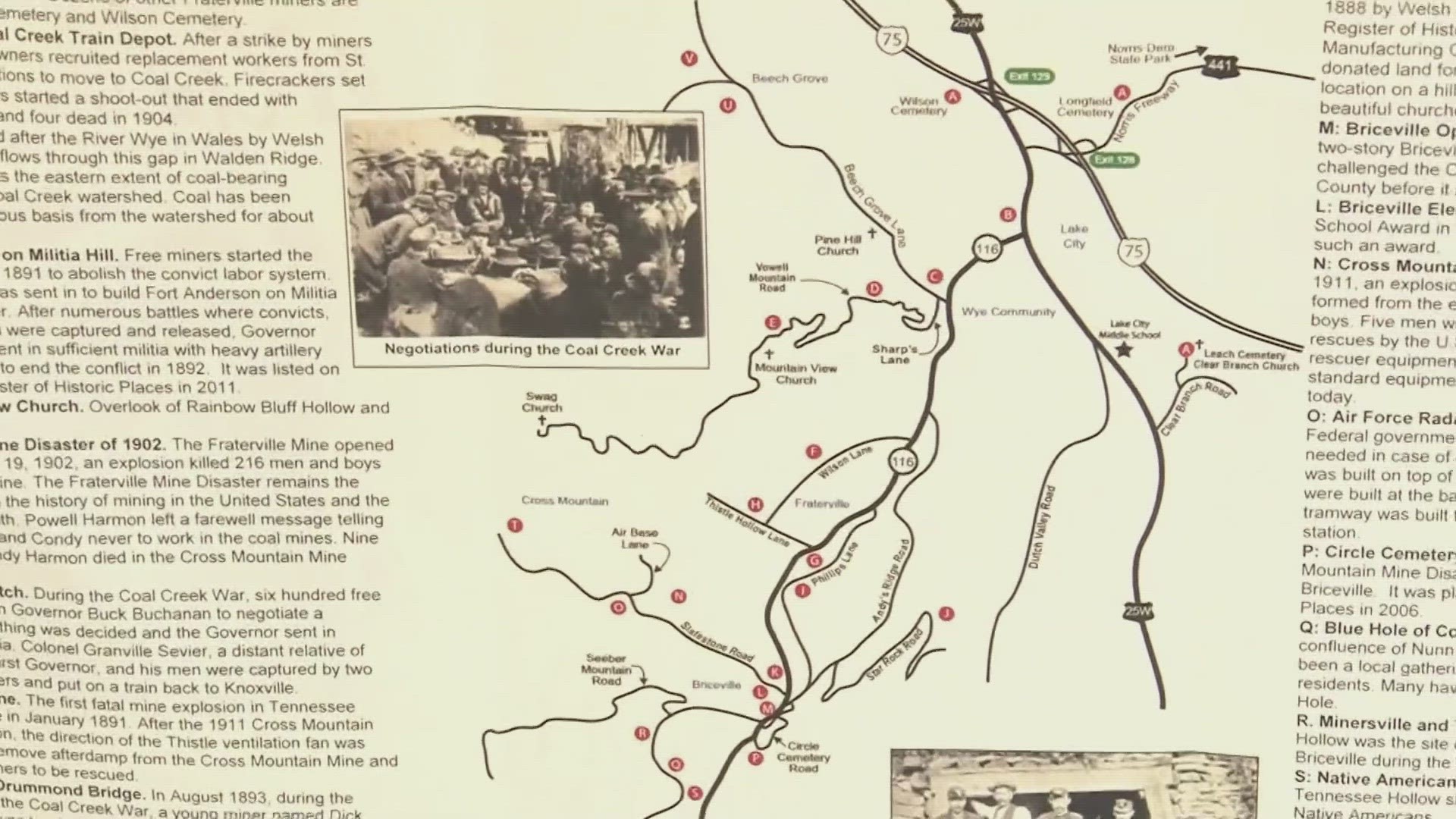ROCKY TOP, Tenn. — Wednesday marked National Miners Day across the country, applauding the skill and dedication that miners show at work every day. A museum in Rocky Top focuses on recalling the stories of miners who shaped East Tennessee communities and safety rules across the U.S.
The Coal Creek Miners Museum shares exhibits and photos of the Convict Lease System, the Fraterville Mine Disaster and the Cross Mountain Mine Disaster.
"Tucked away in the hills of eastern Tennessee is the historic mining community of Coal Creek. Founded in the early 19th century and named after a small stream that runs through the town, Coal Creek was an early example of the hard work and pride that America was built on," said one placard at the museum.
Some of the museum's pictures date back to 1891, when workers of the Tennessee Coal Mining Company in Briceville accused the company of cheating them on their wages, according to the museum.
For many in East Tennessee, mining was a way to provide for families and build a semblance of wealth — even if miners were mostly paid in company scrip to be exchanged in company stores. For workers at the mine, withheld wages were a threat to the welfare of their families.


"But it did provide wealth for the families, and they had, you know, a doctor there that was provided by the coal mine operators. So, it was just a way of life," said Tim Isbel, the chairperson of the museum and an Anderson County commissioner.
As workers discussed going on strike, the company used convicts to replace their labor. The convicts began evicting families from company-owned homes when they arrived. In response, a force of around 500 armed miners and citizens marched on Briceville, forcing the guards to surrender. They were loaded alongside freed convicts on a train to Knoxville.
The fighting became known as the Coal Creek War and had two direct effects on East Tennessee — the eventual abolition of the Convict Lease System and the establishment of the Brushy Mountain State Prison. By ending the Convict Lease System, in which Southern states leased mostly-Black prisoners to private developments following the Civil War, the Coal Creek War also helped end Jim Crow laws.
State leaders signed a symbolic treaty of peace to end the Coal Creek War in 2013, according to Isbel.
The Coal Creek Miners Museum said many miners who survived the war later died in mining disasters, spurning safety reform in mines across the U.S. In 1902, a coal dust explosion sent debris and toxic methane gas out of the mine in the Fraterville Mine Disaster. It was the worst mine disaster in Tennessee history, killing 216 men and boys.
Some who survived the explosion but later asphyxiated in the mine left notes to loved ones on its walls. Images of those notes can be seen at the Coal Creek Miners Museum.


In 1911, another disaster spurred safety reform — the Cross Mountain Mine Disaster. In it, 84 miners died following an explosion. However, five were rescued with equipment from the U.S. Bureau of Mines, one of the first successful mine rescues in the U.S.
An article detailing the rescue, with specifics regarding how the miners were rescued, can also be seen at the museum.
Since then, mining has advanced with automated technology and safety rules. Even with new tools though, miners still travel deep underground to dig out minerals from mountains.
"Back then, you know, it's mostly pick and shovel and manual. Now, they've got automated equipment. They're still going underground, it's still dangerous. But it's just, you know, it's more updated than what it was," said Isbel. "There's a lot of respect for the people that go underground daily. You know, it's one of those things when I go in, or when I used to go in, I would think, 'Why would I even choose this as a profession,' because you're going two miles down in the Earth."

